General
Mak signs Agreement with CIVIS-An Alliance of 10 European Universities
Published
3 years agoon
By
Mak Editor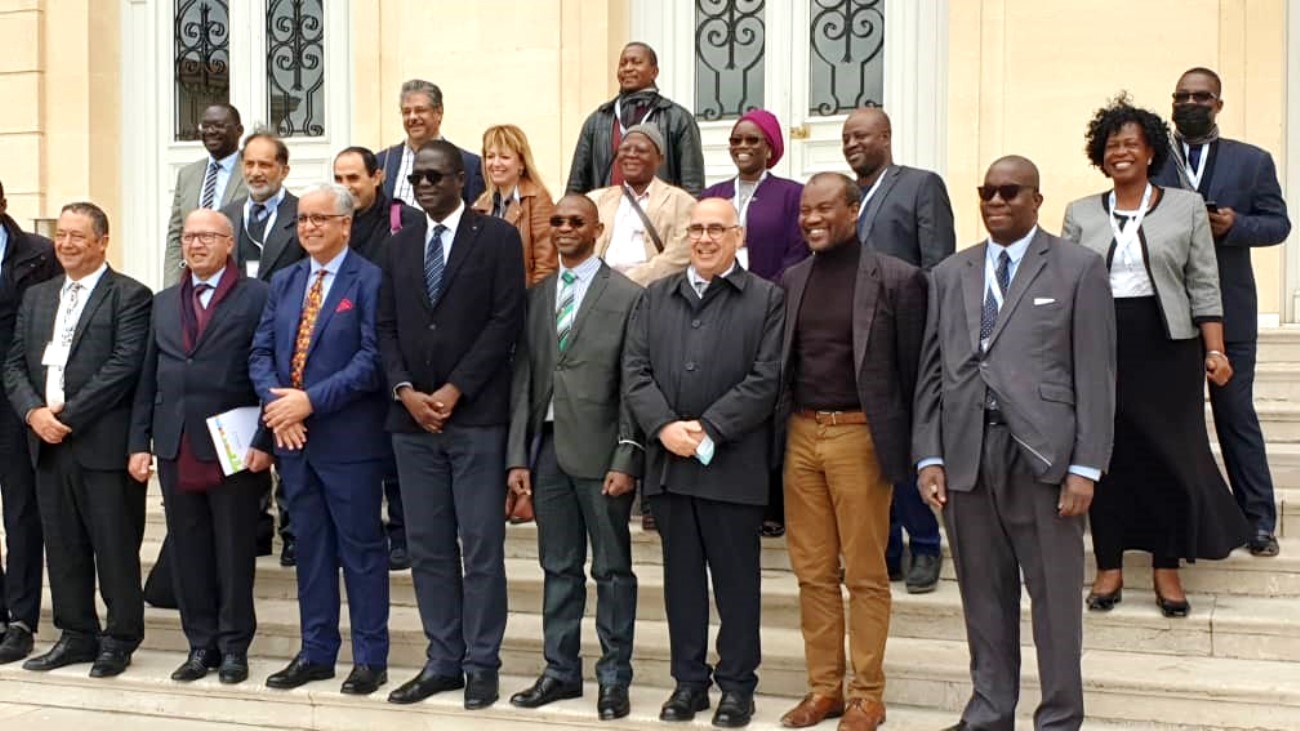
Introduction
The Deputy Vice Chancellor (Academic Affairs), Associate Prof. Umar Kakumba, together with the Deputy Director Directorate of Research and Graduate Training (DRGT), Associate Prof. Robert Wamala and the International Relations Officer, Ms Martha Muwanguzi attended an event , New Horizons for a European –African Partnership at Aix-Marseille University, France. The event was on the invitation of the Vice –President of International Relations of Aix-Marseille University. Held from 8th to 12th March, 2022, the event was organized by CIVIS ; a European University Alliance – and punctuated by conferences and workshops with a focus on importance of the Alliance in strengthening Europe-Africa partnerships.
The Opening ceremony was held in the Amphi Gastaut. the Main Hall of Aix Marseille University. In his welcoming remarks, the Rector Aix Marseille University, Prof Eric Berton was delighted to receive participants especially those from Africa. CIVIS wants to create socially justifiable partnerships and Africa is an essential part of the Alliance with the European universities.
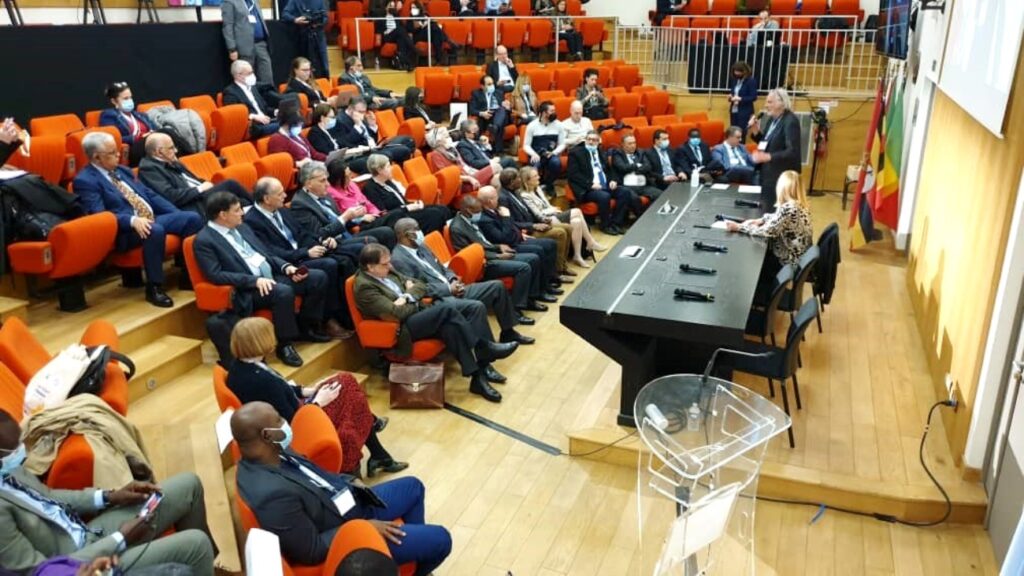
The Director of Strategic Projects and Networks at Aix Marseille, Ms. Camille de Garidel-Thoron introduced the participants to CIVIS. This was followed by another presentation by the Coordinator, CIVIS African and Mediterranean partnerships, University of Tübingen, Germany, Dr Christian Möllman.
Background to CIVIS-A European Civic University
In his remarks, the Coordinator explained that CIVIS is a European Civic University formed by the alliance of ten leading research higher education institutions across Europe namely: Aix-Marseille Université (France); Universite of Bucharest (Romania); Sapienza Universitá di Roma (Italy); Stockholm University (Sweden); Université libre de Bruxelles (Belgium); Universidad Autónoma de Madrid (Spain), Eberhard Karls Universitӓt Tubingen (Germany), University of Glasgow (United Kingdom); The Paris Lodron University of Salzburg (Austria) and the National and Kapodistrian University of Athens (Greece).
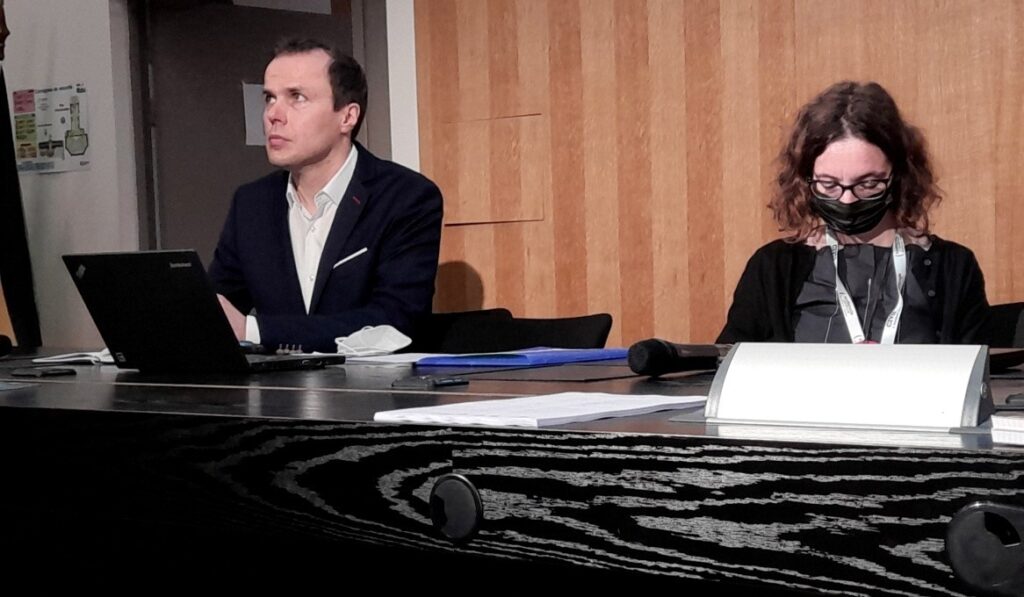
The Alliance brings together a community of more than 470,000 students and 58,000 staff members including 35,000 academics and researchers. The CIVIS member universities actively contribute to the social, cultural and economic activities of the urban environments they are situated in and also promote inclusiveness, gender equality, non-discrimination and social equity. CIVIS strengthens interactions, knowledge production and skills amongst its members and with citizens, the communities, businesses, social and cultural associations. These interactions help reduce inequalities, increase access to quality training and opportunities for students and staff.
CIVIS is governed by a Board of Rectors, headed by a President and two Vice Presidents who make decisions. It has a Steering Committee headed by the President and a CIVIS Administration with a Project Team. There are three councils namely, Global Participant Council, Global Student Council and a Global Consultative Council.
Alliance between CIVIS and African Universities
Humanity now faces global problems such as climatic change, diseases and epidemics, unplanned cities and settlements, to mention but a few. It is important to note that these challenges cut across borders and continents. Therefore, collaboration and partnerships with African Higher Education Institutions (HEI) would be crucial and important to establish. It is on this basis that particular African universities were invited by CIVIS to participate in the events with the aim of extending the partnership to the African continent. Six universities were invited: (i) Makerere University (Uganda); (ii) University of Sfax (Tunisia); (iii) University of the Witwatersrand (South Africa); (iv) Université Hassan II de Casablanca (Morocco); (v) Universidade Eduardo Mondlane (Mozambique), and (vi) Université Cheikh Anta Diop de Dakar (Senegal).
The collaboration and partnership broadens the network for student and staff mobilities as well as study visits. Further, it also supports equitable research partnerships in higher education agreed upon in the European Union and African Union Innovation Agenda which opens up new channels for South-South cooperation. University partnerships have also become powerful vehicles for promoting civic and democratic engagement as well as international economic development.
Presentation by Makerere University
The Vice Chancellors in the African countries presented information about their universities, including identification of areas where they could work together with the European counterparts in the Alliance.
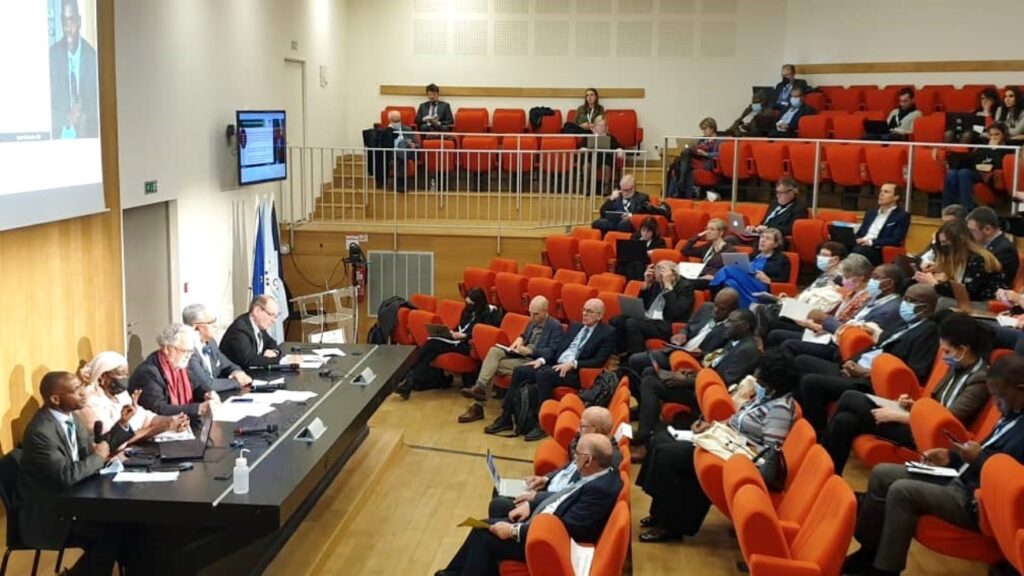
In his remarks, the Deputy Vice Chancellor (Academic Affairs), Associate Prof. Umar Kakumba thanked the organizers of the event and the invitation extended to Makerere University in particular. He supported the idea of a European-African Universities partnership and believes that it will contribute to the Africa Agenda 2063 and its attendant action plan. The aim should be to support research collaboration in selected fields among Africa and the member universities and to strengthen the research infrastructure at the member universities such as Science laboratory and training equipment; research in agricultural value addition and food security; infrastructure planning and management; research in public health and infectious diseases management as well as research in refugee and migration issues.
Prof. Kakumba emphasized that signing an MoU is a great step in the right direction. This should follow a statement of clear roles and responsibilities, and mutual benefits. Furthermore;
- There is need to plan big but start small.
- There should be options of choosing a low cost, simple activity with high impact such as seminars, workshops, regular partnership meetings, student/staff exchange to give partner institutions a chance to learn about each other’s systems, processes and stakeholders.
- There is need to plan and understand the individual institution’s responsibilities and obligations in the partnership and set up timelines, deliverables and milestones.
- It is crucial to establish exactly who will be involved, how communication should happen and what decisions need to be taken in the short term.
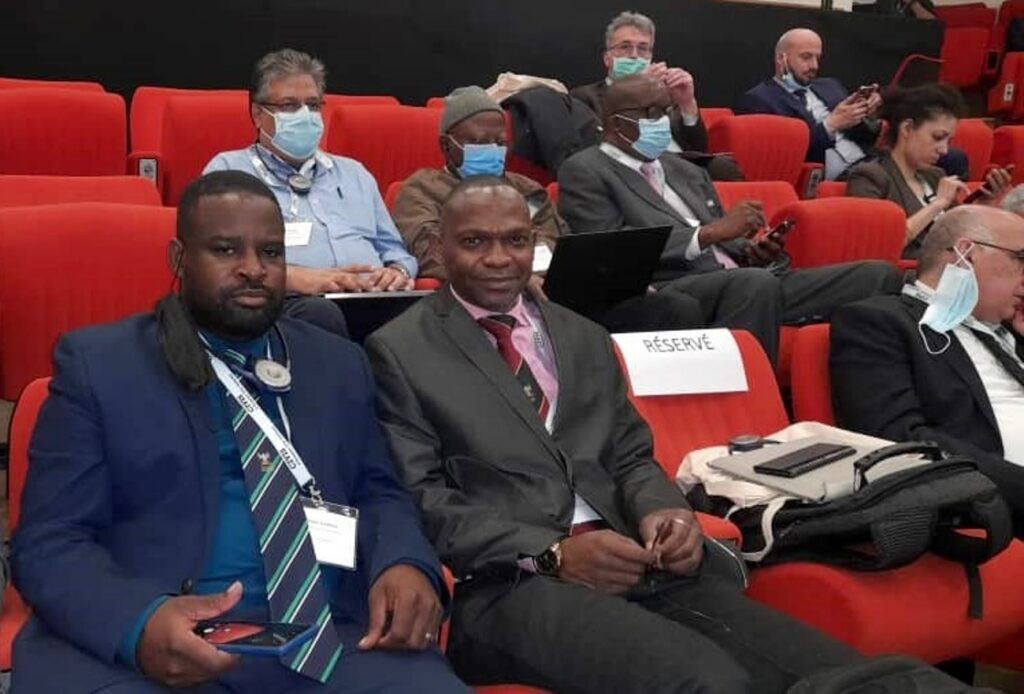
Following presentations by all the six African Universities, a discussion was made to explore common grounds on how the European Alliance can serve African partners. In his remarks, Associate Prof. Robert Wamala emphasized the need to document the roles and expectations of the African in the Alliance. In his remarks, Robert Wamala noted that Universities in the CIVIS Alliance were at a higher advantage in regards to research capacity when compared to the African counterparts. Therefore, the need to build an equal partnership in an unequal world needed to be prioritized.
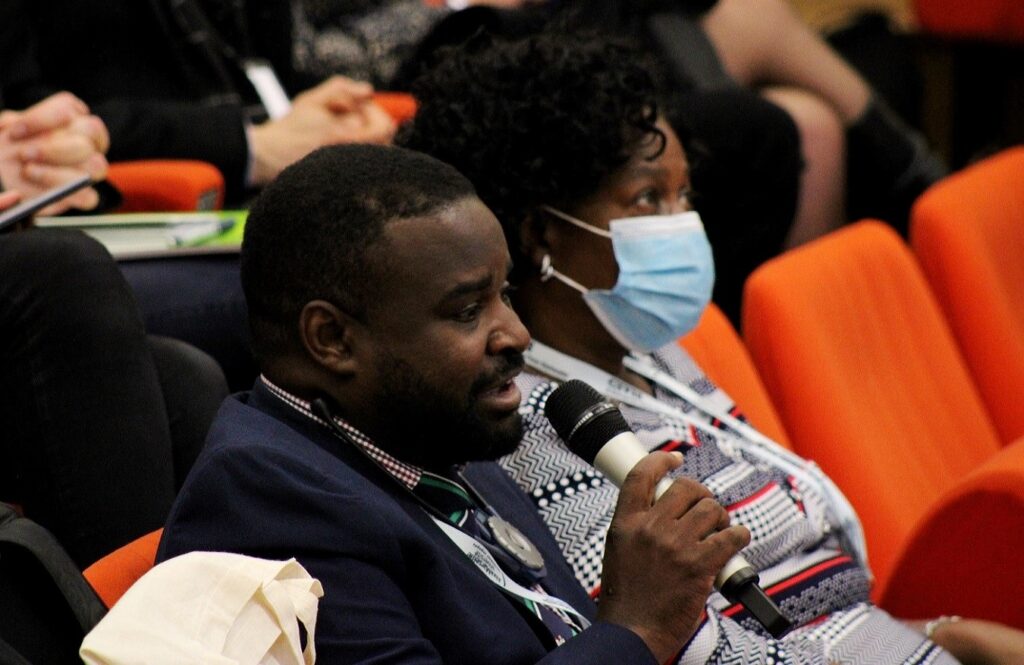
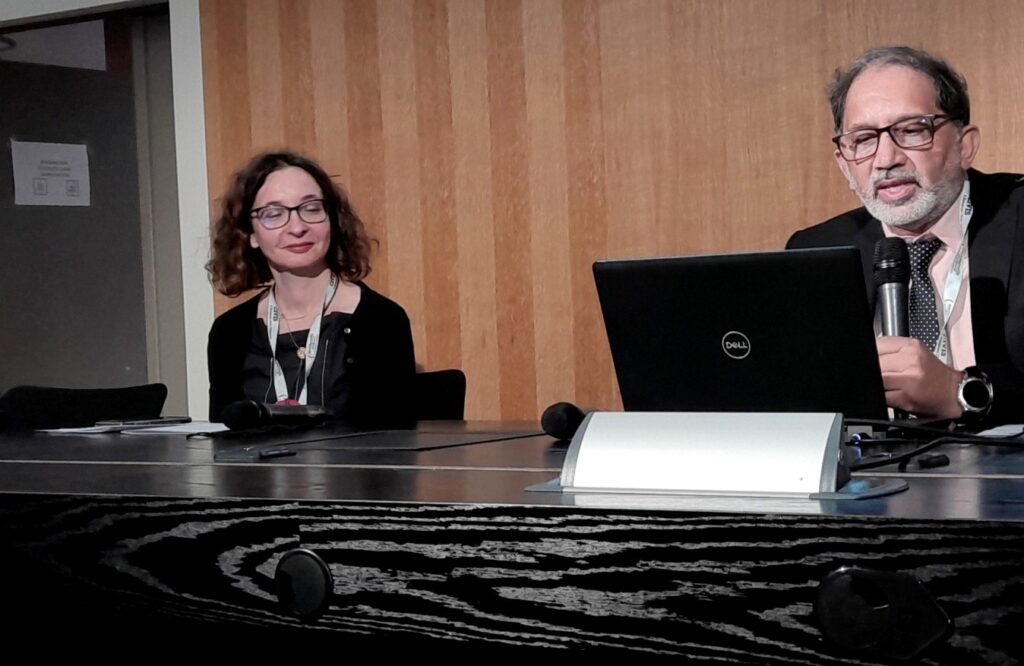
Expectation(s) of the Collaboration
Collaboration in CIVIS is organized around hubs in five multidisciplinary research areas linked to CIVIS values where multiculturalism and multilingualism are encouraged and emphasized , working together to address UN Sustainable Development Goals. The four Hub Chairs made presentations of respective hubs: (i) Hub One focuses on Climate, Environment and Energy; (ii) Hub Two focuses on Society, Culture and Heritage; (iii) Hub Three focuses on Health; and (iv) Hub Four focuses on Cities, Territories and Mobilities. Hub Five is yet to be established. Activities in the Hubs include webinars, workshops, summer schools, field camps and course offerings. Each Hub must have at least three or more CIVIS universities.
All participating universities agreed that there was need to move from unilateral projects to multilateral partnerships and provide input into AU-EU Innovation Agenda and establish advanced study centres. It was noted that in order to have successful international partnerships, equity, trust, transparency and mutual respect for the needs and interests of partners were key to their success and sustainability.
Research collaboration is very important with European universities. The funding received is normally from Erasmus+ but there is need to move further to funding agencies that provide support for education such as CIVIS. It was further noted that mobility and exchanges of students and staff is there to stay and cannot replace human interaction, and other forms of education need to be developed and blended with virtual mobility. Furthermore, what is good for our students is good for our partnerships“Together we are stronger”. In this partnership, there is need to have a joint practical collaboration by “Building an equal partnership in an unequal world”
Signing of Agreements
At the end of the three- day conference, the Vice Chancellors of the African universities signed a Strategic Partnership Agreement with CIVIS (A European Civic University Alliance) to lay a foundation for collaboration in research and education focusing on societal challenges, mobilities and institutional development.
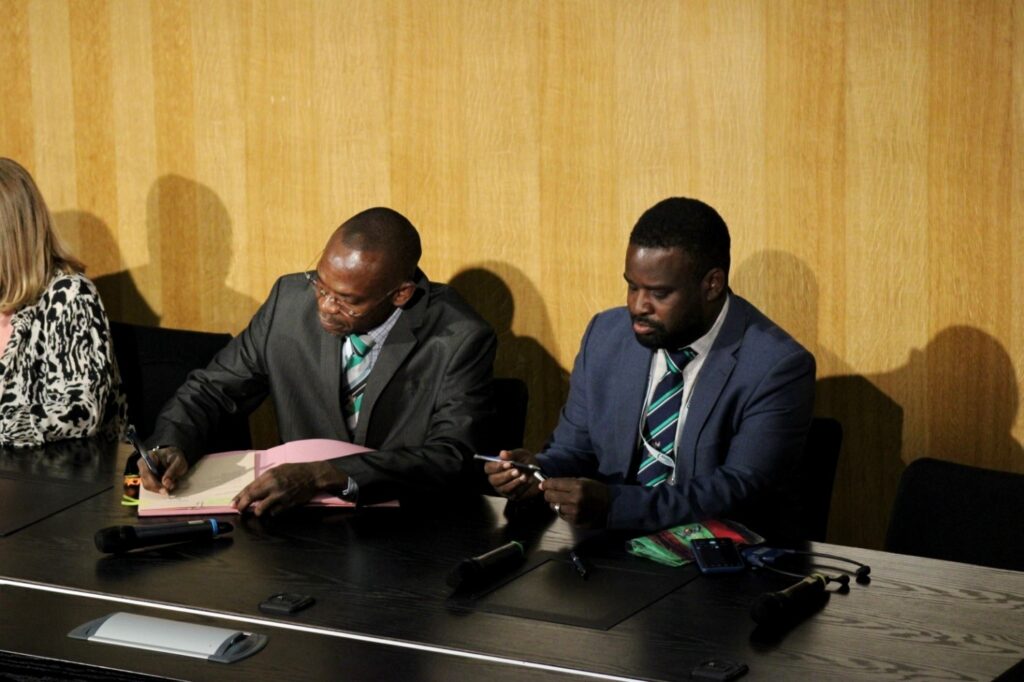
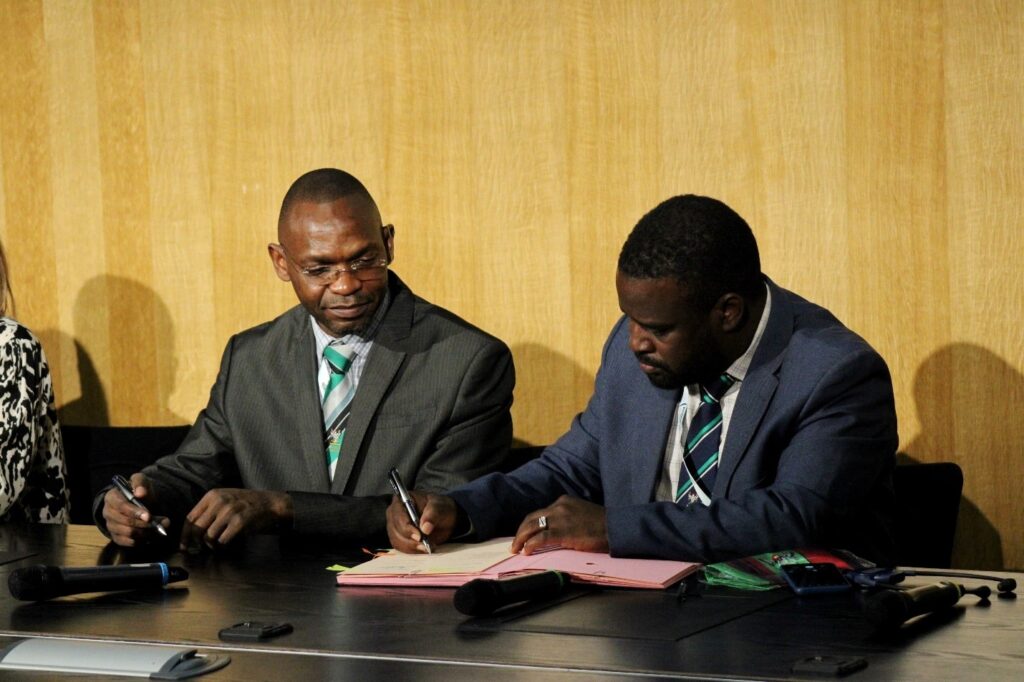
Expectations of Makerere University
Similar to the rest of the African Universities, Associate Prof. Umar Kakumba presented the expectations of Makerere University from the Alliance. These included, but were not limited to the following:
- Potential for staff and student mobility within member universities in the Alliance
- Development of joint degree programs around the hub themes
- Mobilization of international funding for research
- Cross disciplinary activities including workshops, seminars and Conferences
- Improving research infrastructure in partner universities in the Alliance
Photo Gallery
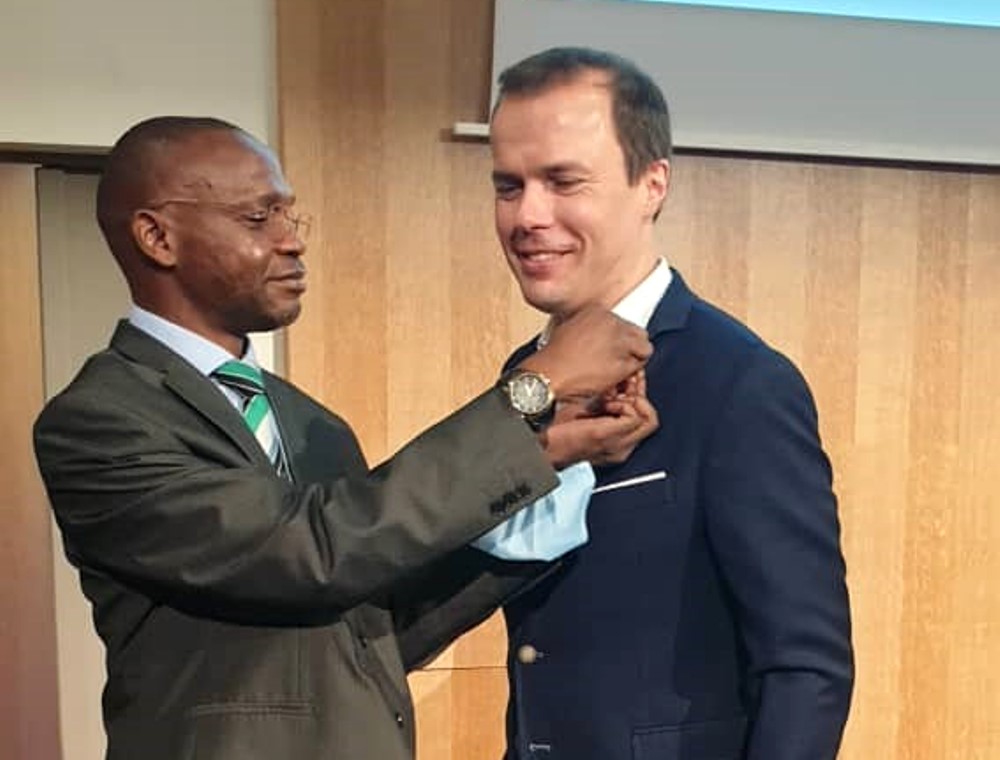
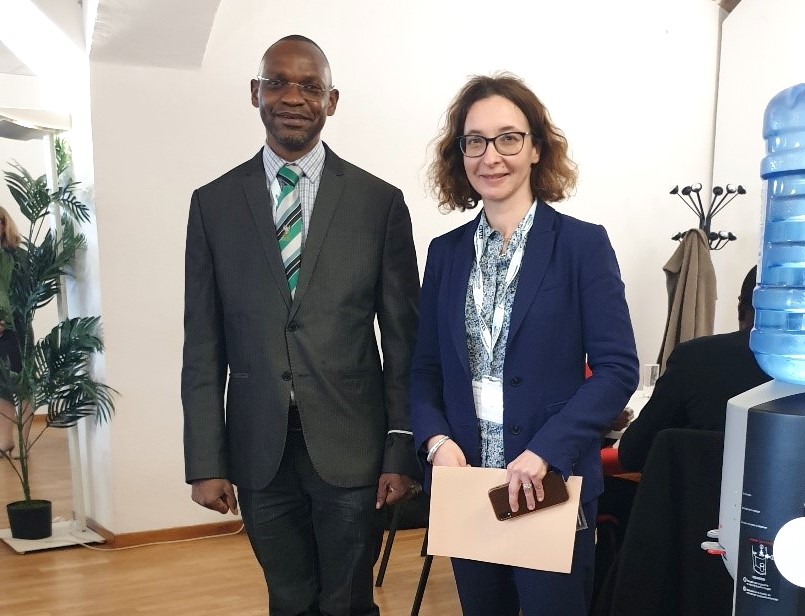
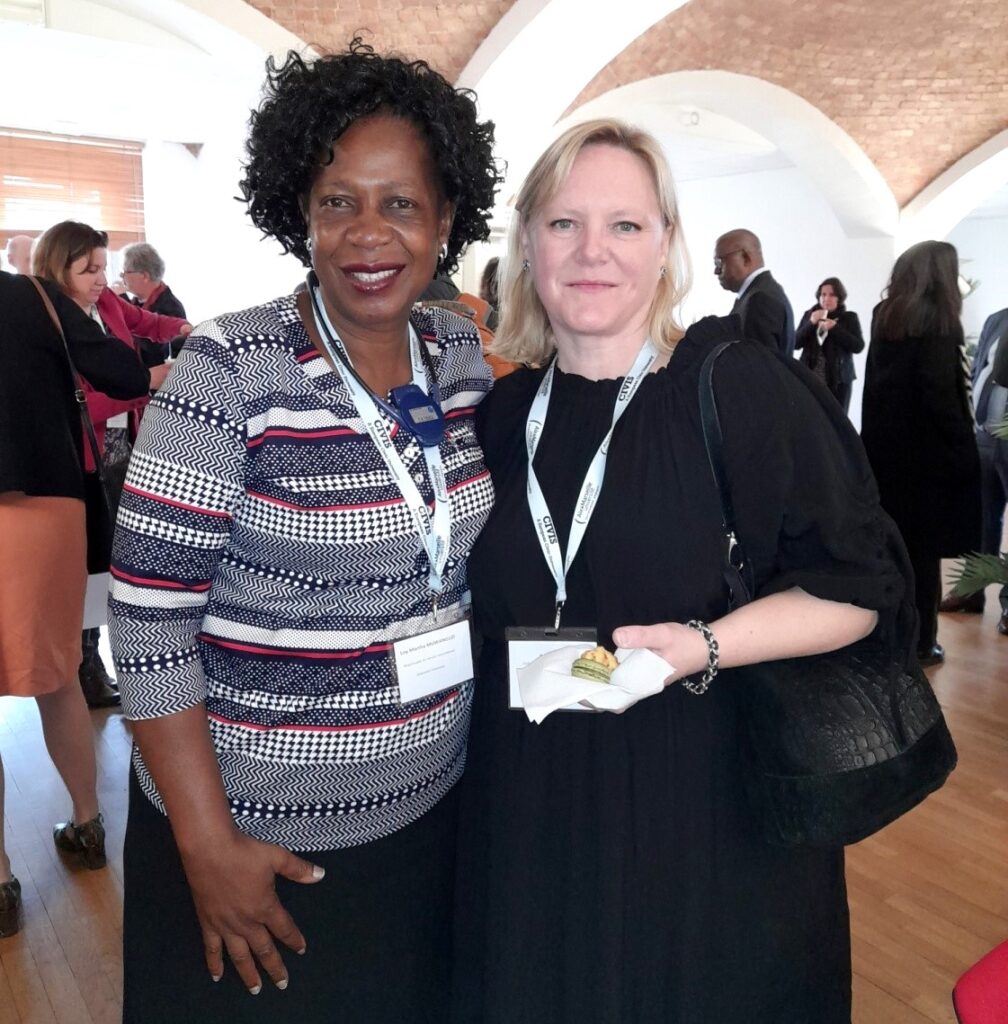
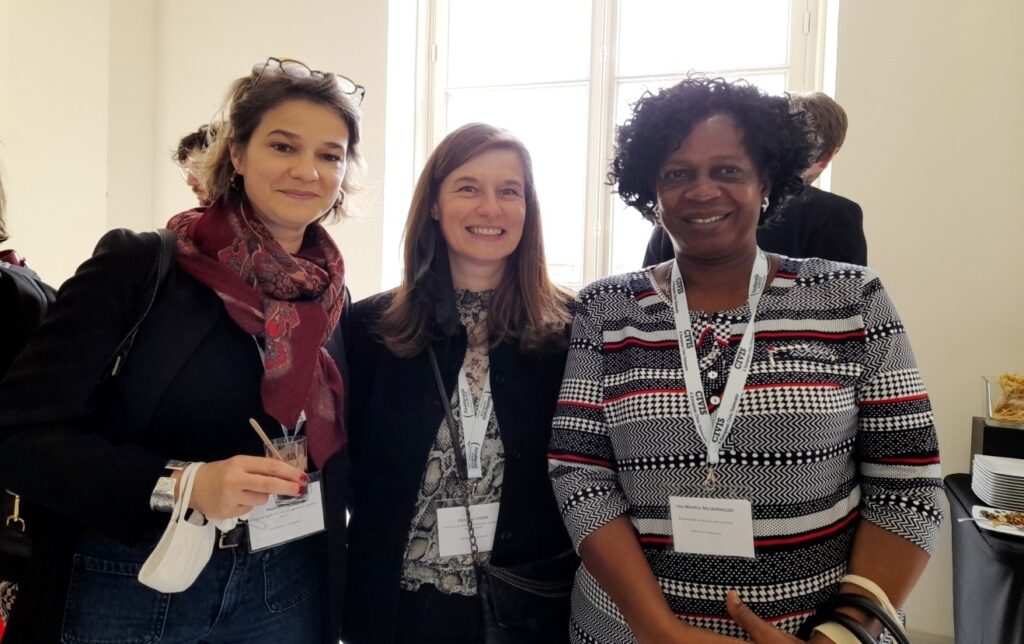
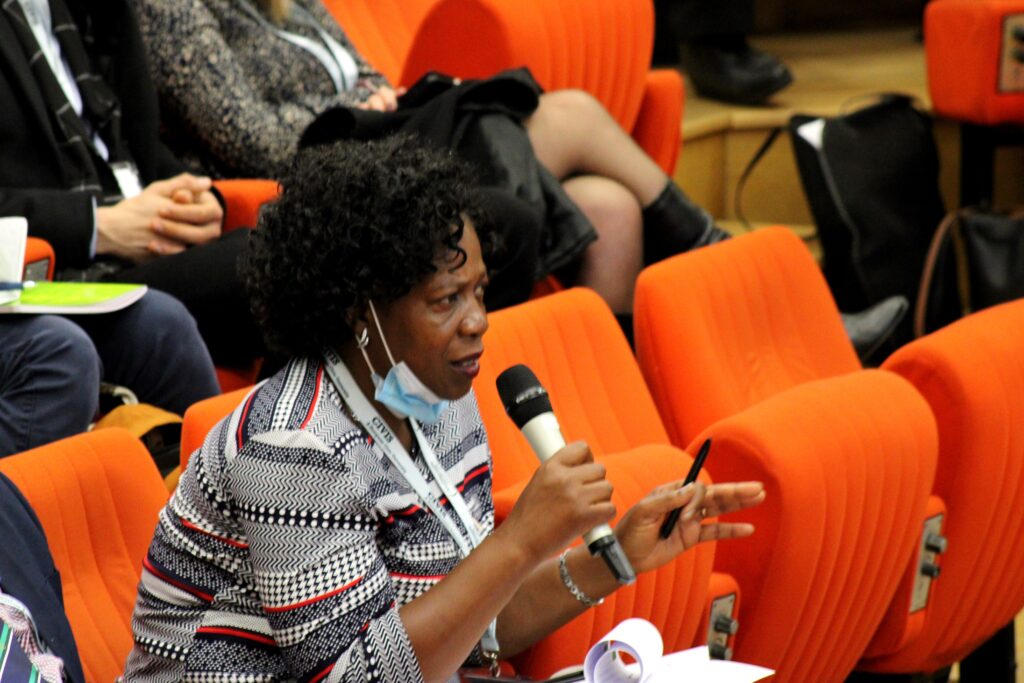
Compiled by Ms. Martha Muwanguzi, International Officer, Makerere University
You may like
-


EfD-Mak Holds 2nd Advisory Board Meeting: Charts Path for Growth
-
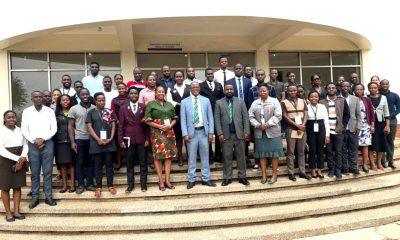

Mak Moves to Revitalize Food Technology & Business Incubation Centre to Drive Innovation & Entrepreneurship
-
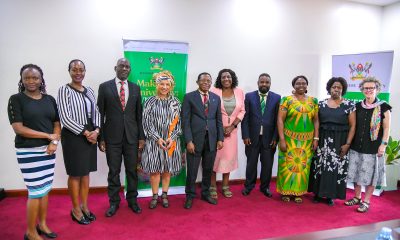

Mak, HERS-EA Discuss Nurturing More Women Leaders
-
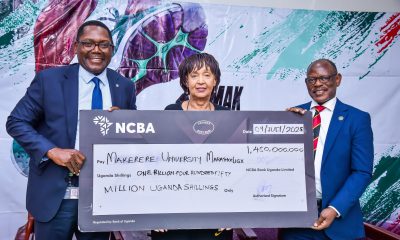

Mak Marathon Unveils NCBA as Platinum Sponsor
-
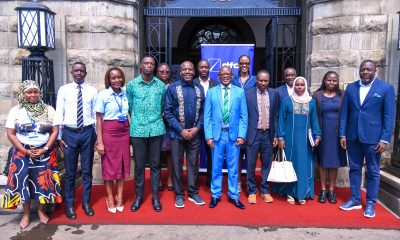

Makerere University, DFCU Bank Sign MoU to Advance Innovation, Student Leadership and Research
-
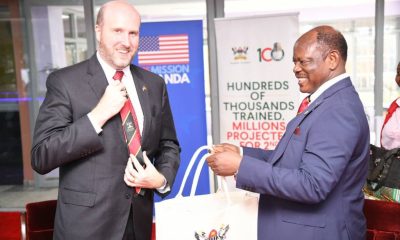

Happy Independence Day, America
General
Simplicity, Service & Scholarship: Hallmarks of Professor Livingstone Luboobi’s Legacy
Published
9 hours agoon
July 18, 2025By
Eve Nakyanzi
On Wednesday 16th July 2025, Makerere University lost one of its most cherished sons, Professor Livingstone Sserwadda Luboobi. Described as a mathematician, academic leader, and humble servant, Professor Luboobi devoted more than five decades to the university, rising through the ranks to become Vice Chancellor, and leaving a legacy defined by simplicity, service, and scholarship.
Born to Lameka Serwadda and Sanyu Serwadda on 25th December 1944 in Mitondo, Kalisizo, Kyotera District, Professor Luboobi’s academic career begun as a third-year student at Makerere and continued with unwavering loyalty until his passing. His life’s work reflected not only a commitment to mathematics but also nurturing generations of scholars and leaders across Uganda and beyond.
A funeral service was held in his honour at St. Francis Chapel, Makerere University on 18th July 2025. It was a moment of solemn remembrance and heartfelt tribute. Rev. Canon Dr. John Senyonyi delivered the sermon titled “Only God Knows,” reminding mourners of the mystery and grace of life’s journey. Rev. Canon Geoffrey Byarugaba represented the Kampala Diocese at the service, while former St. Francis Chaplain, Rev. Dr. Canon Johnson Ebong thanked Professor Luboobi for spearheading the Chapel’s expansion. Friends, colleagues, and family members filled the chapel, joined in mourning but also in gratitude for a life that had deeply touched theirs.

Mrs. Lorna Magara, Chairperson of the University Council, spoke movingly about Professor Luboobi’s faithfulness, likening his life to the biblical call in Mark 10:43, “Whoever wants to become great among you must be your servant.”
In his condolence message, the Vice Chancellor, Professor Barnabas Nawangwe, hailed Professor Luboobi as a visionary leader whose legacy is deeply woven into Makerere’s identity as a research-led institution. He credited Professor Luboobi with laying the groundwork for a culture of inquiry—championing graduate programmes, encouraging doctoral training, and fostering international collaborations that strengthened the university’s research profile. “He believed in building systems, not just structures,” noting that many of Makerere’s current research policies stem from his leadership. Even in retirement, Professor Luboobi remained a source of wisdom and guidance, quietly shaping the future of the university he so deeply loved.
Speaker after speaker painted a portrait of a man who led not by pomp, but by quiet strength and deep conviction. The Principal, Professor Winston Tumps Ireeta, speaking on behalf of the College of Natural Sciences (CoNAS), described Professor Luboobi as a foundational figure whose influence is deeply etched in the structures and spirit of the college. He spoke with emotion about Luboobi’s unwavering commitment to academic integrity and his belief in the power of mentorship.

“He was not just a mathematician,” Professor Ireeta said, “he was a visionary who understood the soul of the university. Even in retirement, he remained an advisor, a guide, and a quiet force of wisdom.” He concluded by saying that the college would continue to draw from his example as it navigates the future of science and innovation in Uganda.
Professor Luboobi’s illustrious career at Makerere University included serving as Head, Department of Mathematics from 1990 to 1991. The current Head of Department, Dr. Ismail Mirumbe remembered him as a pillar in the teaching and development of mathematics in Uganda
Professor John Mango, who served as Head, Department of Mathematics during Professor Luboobi’s term as Vice Chancellor from 2004 to 2009 described him as a towering figure of integrity and principle, someone who not only upheld the highest standards of academic conduct but insisted that others around him do the same. “He was a pillar in the department,” Prof. Mango remarked, “and his moral compass was unwavering.”

He recalled instances where Professor Luboobi made firm decisions, including terminating contracts when integrity was compromised, setting a tone that shaped the department’s reputation for honesty and excellence. Even as Vice Chancellor, he remained deeply involved in the department’s affairs, teaching, supervising students, all the while handling top administrative duties punctually. Prof. Mango spoke with great admiration of a man who led by example, mentored many, and whose contributions to mathematics education, research, and policy-making continue to shape the future of the discipline in Uganda and beyond.
According to an article from 1990 written by Dr. Vincent Ssembatya and Andrew Vince at the University of Florida, the Uganda Mathematical Society (UMS), which was formally established on 25th November, 1972 has since inception enjoyed major support from Makerere University and Kyambogo University in terms of infrastructure and leadership. Professor Paul Mugambi, who was also present at Professor Luboobi’s funeral service was elected first president of the UMS. Dr. Saul Nsubuga from the Department of Mathematics represented UMS at the service, honouring Professor Luboobi’s pioneering role in the discipline.
The service also featured tributes from close friends and family. Loved ones shared stories of a man who remained grounded no matter how high he rose, a man who valued relationships and walked closely with his faith. His children and grandchildren remembered him as a father who was ever-present, a listener, and a source of steady guidance.

Professor Daniel Kibuule, son of the late Professor Luboobi and Dean, Faculty of Health Sciences at Busitema University, delivered a deeply personal tribute that painted a full portrait of his father’s life, values, and final days. He expressed gratitude to the University leadership, family, friends, and medical professionals who stood with them during a challenging period. He particularly thanked his siblings, Dr. David Kimera and Dr. Irene Nakiyimba for their unwavering role in caring for Professor Luboobi through illness.
He spoke of a man who, despite great academic accolades, remained deeply humble and committed to discipline, simplicity, and faith. From instilling punctuality and responsibility to ensuring his children charted their own paths, none bearing his surname “Luboobi”, Prof. Luboobi was intentional in every lesson he passed on. Kibuule recalled his father’s insistence on being at home even in his final moments, his strong connection to Christ, and his quiet strength despite his failing health.
Former students and mentees echoed the same sentiments, of a teacher who was generous with his time and invested deeply in others’ growth. The community that gathered was not only there to grieve but to celebrate the quiet legacy of a man whose example continues to live on.
Among the mourners were public figures and leaders, including Hon. Abed Bwanika, Member of Parliament for Kimanya-Kabonera, Hon. Nyombi Thembo, the Executive Director Uganda Communications Commission, and Hon. Dr. Ham-Mukasa Mulira, former Minister of ICT, among others.
In his passing, Makerere University has lost a pillar, but his life reminds us that greatness lies in consistency, in humility, and in service to others. Professor Luboobi’s memory will continue to live on in the minds he shaped, the systems he built, and the values he embodied. He ran his race with grace.
The Writer is a Volunteer in the Public Relations Office, Makerere University
Please click the embedded video below to view the service livestream
General
Public University Legal and Accounting Officers Trained on Governance and Compliance
Published
2 days agoon
July 17, 2025By
Eve Nakyanzi
Legal and accounting officers from public universities across Uganda have convened, for a high-level training workshop organized by Makerere University. The three-day training, taking place from July 16th to 18th, 2025, is aimed at strengthening legal frameworks, improving institutional governance, and ensuring compliance with public finance and procurement laws within higher education institutions.
Ms. Lorna Magara, Chairperson of the Makerere University Council and Guest of Honour at the opening session, commended the initiative as timely and necessary. She addressed the growing backlog of court cases affecting Makerere and other public universities and outlined measures already taken to mitigate legal risks. These include the establishment of a Legal Rules and Privileges Committee and the Directorate of Legal Affairs, part of a broader strategy to improve legal compliance and foster good governance.
Representing the Vice Chancellor, Prof. Winston Tumps – Ag. Deputy Vice Chancellor (Finance and Administration), described the training as both strategic and practical. “It is imperative that we learn from each other, especially in how we handle employee litigation and institutional legal risks,” he remarked. He added that the program is designed to promote experience-sharing across universities and enhance collective institutional growth.

In his address, Mr. Yusuf Kiranda, University Secretary at Makerere University, emphasized the urgent need for robust legal oversight and more effective case management mechanisms within public universities.
The training featured a keynote address by the Attorney General of Uganda, Hon. Kiryowa Kiwanuka, who provided critical insights into legal expectations for public institutions. He warned that failure to heed legal advice could result in personal liability for accounting officers, citing a precedent involving the Uganda Cancer Institute. “Universities must consult the Attorney General’s chambers before entering into major contractual obligations,” he advised, urging legal officers to document decisions meticulously as proper record-keeping forms the first line of defense in legal disputes.

Hon. Kiwanuka further discussed the government’s ongoing efforts to recentralize legal services to ensure alignment with the Attorney General’s office. He cautioned in-house counsel against becoming overly entangled in decision-making processes, stressing the need for objectivity. Other key issues he addressed included contract approvals, misuse of Memoranda of Understanding (MoUs), and lapses in procurement processes, particularly at the close of financial years.
Participants also benefited from insights by Hon. Justice Musa Ssekaana of the Court of Appeal, who offered an in-depth analysis of judicial review and its significance in promoting lawful, transparent university governance. He called on university legal officers to act with clarity, timeliness, and accountability.
Lady Justice Joyce Kavuma, Judge of the High Court, delivered a comprehensive presentation on dispute and claim management involving public universities. She addressed emerging trends in civil litigation, emphasizing the importance of due process, transparency, and clear communication in resolving employment, student, and contractual disputes. Drawing on real case examples, she urged institutions to strengthen internal systems, embrace participatory governance, and adopt regional best practices to minimize litigation and protect institutional reputation.

The training reflects a shared commitment among public universities to build a more accountable, legally sound, and strategically aligned higher education system in Uganda. Through peer learning and collaboration, participating institutions aim to reduce litigation, enhance institutional autonomy, and uphold the rule of law.
Participating universities include Makerere University, Kyambogo University, Mbarara University of Science and Technology, Busitema University, Mountains of the Moon University, and Lira University.
The training concludes on July 18th 2025, with sessions focusing on employment dispute management in public universities and the implications of recent PPDA Appeals Tribunal decisions on procurement and disposal practices within public entities.
General
Celebrating the Life of Prof. Livingstone Sserwadda Luboobi
Published
2 days agoon
July 17, 2025By
Mak Editor
A Visionary Leader, Seasoned Mathematician, & Humble Academician
It is with profound love and respect that we celebrate the life of Prof. Livingstone Sserwadda Luboobi, a distinguished scholar, transformative leader, and beloved Vice Chancellor Emeritus of Makerere University. His legacy is woven in the fabric of African higher education, marked by intellectual brilliance, unwavering commitment to academic excellence, and a life of selfless service.
A Life of Purpose and Vision
Prof. Luboobi was more than a mathematician. He was a visionary, whose work transcended equations and research papers. Serving as Vice Chancellor from 2004 to 2009, he led Makerere University through a critical period of growth and transformation. Under his guidance, the university expanded its reach, strengthened its academic rigor, and embraced innovation and reform. His calm demeanour and principled decision-making earned the admiration of students, faculty, and peers alike.
Prof. Luboobi was deeply committed to nurturing talent and fostering intellectual curiosity, leaving an indelible mark on the institution’s culture and future direction.
Beyond Uganda, Prof. Luboobi’s influence resonated across the global academic community. He was a passionate advocate for the transformative power of science and education, often speaking at international forums and collaborating on research that bridged continents and disciplines. His work helped elevate the profile of African scholarship on the world stage.
His legacy endures not only in the impressive body of work he left behind but also in the countless lives he touched – students, educators, and leaders who continue to draw inspiration from him.
Academic and Leadership Journey at Makerere University
An illustrious alumnus of Makerere University, Prof. Luboobi graduated with First Class Honours in Mathematics, laying the foundation for an extraordinary academic journey. He pursued further studies at the University of Toronto (MSc in Operations Research, 1971-72) and the University of Adelaide (PhD in Biomathematics, 1978–80). His scholarly journey spanned prestigious institutions worldwide, including UCLA, the University of Bergen, and the University of Dar es Salaam, establishing him as a scholar of global repute and a proud ambassador of African intellectualism.
Prof. Luboobi’s service to Makerere begun in 1970 as a Special Assistant-remarkably, while still an undergraduate, rising through the ranks to full Professor in 1997. He served as Head of Department, Dean of the Faculty of Science (1994–2001), and later became the university’s first elected Vice Chancellor. His tenure brought new energy to institutional leadership, characterized by transparency, inclusivity, strategic direction and accountability.
Strategic Reforms and Institutional Impact
A true architect of transformation, Prof. Luboobi chaired the development of Makerere’s first locally-conceived Strategic Plan (1990–91). He was instrumental in securing a UGX30 billion grant from NORAD in 1999, which revitalized key academic areas such as computing, gender studies, and food science. He co-founded the Makerere University Private Sector Forum, bridging the gap between academia and industry, and strengthening alumni engagement and resource mobilization.
Pioneering Biomathematics and Mentorship
As one of Africa’s pioneering biomathematicians, Prof. Luboobi introduced mathematical modeling to tackle real-world problems in epidemiology, ecology, and operations research. His scholarly contributions – over 150 publications – reflect the depth and breadth of his research. Yet, perhaps his most lasting impact lies in mentorship: he supervised more than 35 PhD and over 50 MSc students, including Makerere’s first female PhD graduate in Mathematics, nurturing a generation of scholars and leaders.
Prof. Luboobi’s Contribution to the Internationalization of Makerere University
Prof. Luboobi played a pivotal role in advancing the international profile of Makerere University. Demonstrating remarkable personal commitment, he utilized his own resources to support the establishment of the University’s International Office. This strategic initiative laid the foundation for a more structured and effective engagement with global academic institutions, development partners, and international students. As a result, Makerere University significantly enhanced its global footprint, forming numerous international collaborations and attracting increased academic and research opportunities from abroad.
In addition to his contributions to internationalization, Prof. Luboobi was also instrumental in revitalizing the University’s Public Relations Unit. Under his guidance, the unit adopted more proactive and professional communication strategies, which greatly improved the institution’s public image. This, in turn, fostered greater public trust and strengthened the university’s reputation both locally and internationally. His visionary leadership in these areas has had a lasting impact, positioning Makerere University as a leading institution in East Africa and beyond.
Global Recognition and Enduring Legacy
Prof. Luboobi’s contributions earned him widespread recognition. In 2008, the University of Bergen awarded him an Honorary Doctorate for his role in internationalizing academia. Makerere University honoured him with a Lifetime Achievement Award in 2013, and the Government of Uganda conferred upon him a National Gold Medal for his unwavering service to education and national development.
Even after retirement, Prof. Luboobi remained an active contributor to academic life-lecturing, supervising, and advising the university.
A Lasting Light in African Academia
Prof. Livingstone Sserwadda Luboobi’s life was a model of scholarship anchored in service, leadership tempered with humility, and an unshakable belief in the power of education. He leaves behind a vibrant academic legacy and a trail of inspired minds. His contributions will continue to shape Makerere University, Uganda, and the global academic community for generations to come.
We extend our heartfelt condolences to his family, colleagues, and the entire Makerere University community during this difficult time.
May his soul rest in eternal peace.
Trending
-

 General2 weeks ago
General2 weeks agoRe-advert: Admission to Undergraduate Programmes 2025/2026
-

 General1 week ago
General1 week agoRe-Advert for Applications for Diploma and Certificate Training
-

 General5 days ago
General5 days agoMakerere University Fees Waiver for 40 First Year Female Students 2025/2026
-

 General2 weeks ago
General2 weeks agoPress Statement on Ranking
-

 Health1 week ago
Health1 week agoCall for Applications: Responsible Conduct of Research (RCR) Training Course
